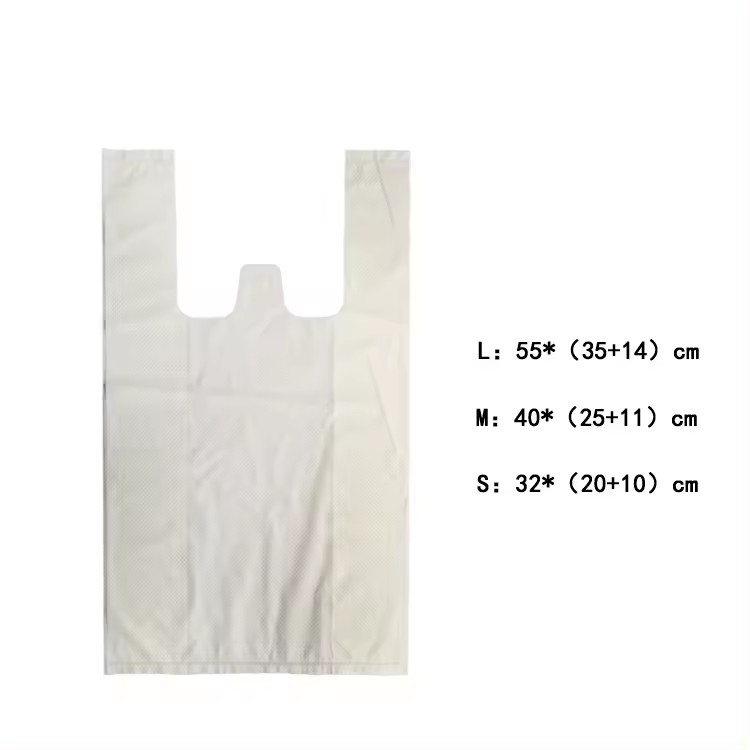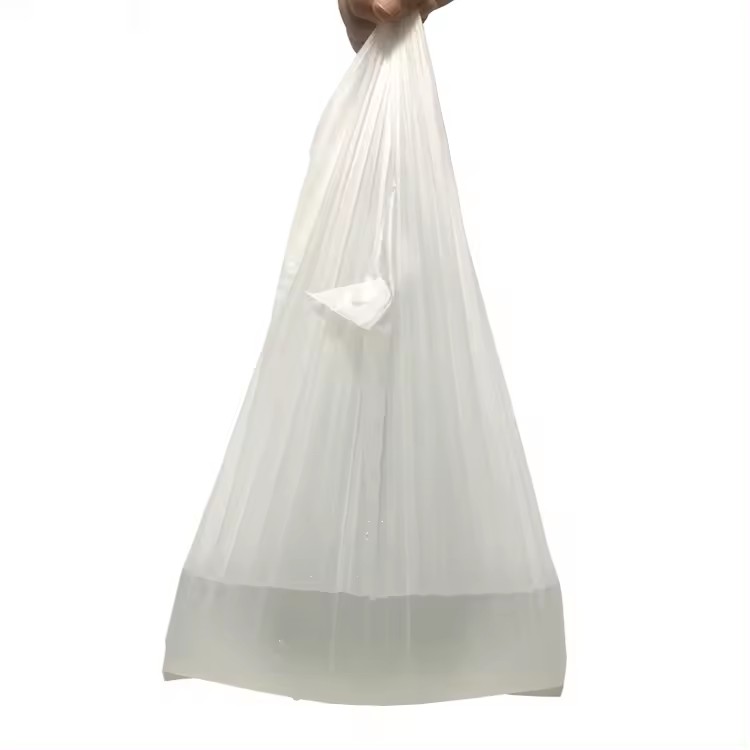What Are the Benefits of Using Biodegradable T-shirt Bags?
In recent years, there has been a growing concern about the environmental impact of plastic pollution, prompting businesses and consumers alike to seek more sustainable alternatives. One such solution gaining traction is the use of biodegradable T-shirt bags. These bags offer a eco-friendly alternative to traditional plastic bags, providing a range of benefits for both businesses and the environment.
1. Types and Categories
Biodegradable T-shirt bags come in various types and categories, each designed to meet specific needs. Some are made from biodegradable materials such as plant-based polymers, while others are created using innovative recycling techniques. These eco compostable bags can be categorized based on their material composition, thickness, and intended use, providing flexibility and versatility for businesses across different industries.
2. Symptoms and Signs
The symptoms of unsustainable plastic consumption are evident in the proliferation of plastic waste in landfills, oceans, and waterways. Traditional plastic bags can take hundreds of years to decompose, posing a significant threat to wildlife and ecosystems. Compostable T-shirt bags offer a solution to this problem by breaking down naturally over time, reducing the burden on the environment and minimizing pollution.
3. Causes and Risk Factors
The primary cause of plastic pollution is the overreliance on single-use plastics in various industries, including retail, food service, and hospitality. These plastics often end up in the environment due to improper disposal and lack of recycling infrastructure. Compostable T-shirt bags address this issue by providing a sustainable alternative that reduces dependence on non-biodegradable materials, mitigating the risk of pollution and environmental harm.


4. Diagnosis and Tests
Determining the effectiveness of compostable T-shirt bags involves assessing their biodegradability, durability, and overall environmental impact. Various tests and certifications exist to evaluate these factors, including compostability tests, biodegradation studies, and life cycle assessments. By undergoing rigorous testing and certification processes, businesses can ensure that the bags they use meet stringent environmental standards.
5. Treatment Options
The adoption of biodegradable T-shirt bags represents a proactive approach to addressing plastic pollution and promoting sustainability. Businesses can integrate these bags into their operations as part of their commitment to environmental stewardship. By offering biodegradable options to customers, businesses can reduce their carbon footprint and contribute to a cleaner, healthier planet.
6. Preventive Measures
Incorporating biodegradable T-shirt bags into everyday practices is a preventive measure against plastic pollution and its detrimental effects. Businesses can take proactive steps to reduce their environmental impact by phasing out single-use plastics and transitioning to more sustainable alternatives. By making conscious choices about the products they use and the materials they employ, businesses can help protect the planet for future generations.


7. Expert Insights
According to Dr. Emily Smith, a leading environmental scientist, "The use of biodegradable T-shirt bags represents a positive step towards reducing plastic pollution and promoting a more sustainable future. By choosing biodegradable options, businesses can minimize their environmental impact and contribute to the preservation of our planet's delicate ecosystems."
In conclusion, the benefits of using biodegradable T-shirt bags are clear: they offer a sustainable alternative to traditional plastic bags, reducing pollution and environmental harm. By making the switch to biodegradable options, businesses can demonstrate their commitment to sustainability and help protect the planet for future generations.






